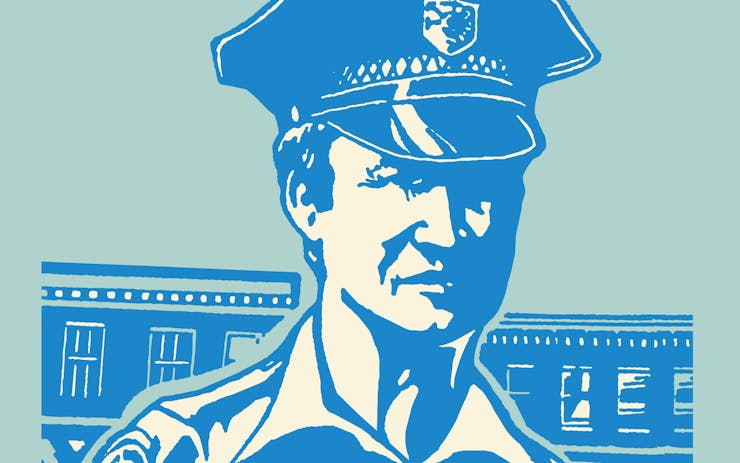Cannabis legalization has dramatically reduced the number of marijuana arrests in Washington, Colorado, and other adult-use states. But as the overall number of arrests plummeted, the racial disparities within those numbers remained stubbornly intact. In fact, the disparity has gotten worse.
Before legalization, black people were 2.4x more likely to get arrested for cannabis. After legalization: 5x.
That’s the finding of a new report published this week in the journal Substance Use & Misuse, which found that cannabis arrest rates in Washington, post-legalization, were five times higher for African-Americans than for whites. Prior to legalization, black people were getting arrested for cannabis at a rate 2.5 times that of whites.
The study was led by Caislin Firth, a researcher at the University of Washington’s Department of Public Health.
Fewer arrests, greater disparities
This week’s report points to the incredible stickiness of racism in policing. In recent years both Colorado and Oregon have reported similar results. Two reports, one in 2015 and another in 2018, found large decreases in cannabis arrests in Colorado after adult-use legalization, along with continuing disparities for black residents. In Oregon, overall cannabis arrests plummeted but black people still faced much greater odds of arrest than white people.
Here’s the good news: Overall arrests have plummeted since adult-use legalization took effect in Washington in January 2013. A year earlier, the state’s arrest rate for cannabis crimes stood at 9 per 100,000 residents. That rate plummeted to near zero in January 2013 and has remained there ever since.
Underage arrests down 66%
Arrests continue to be a problem among underage residents, though. Cannabis arrests among Washington state residents ages 18 to 20 dropped from 60 per 100,000 to around 20 per 100,000 by the end of 2015.

Source: “Did marijuana legalization in Washington State reduce racial disparities in adult marijuana arrests?”, Substance Use & Misuse, May 16, 2019.
Illegal sales still a problem
The data regarding people arrested for distributing or selling cannabis outside the state-licensed system, though, is the real eye-opener. “The number of arrestees associated with an incident for distributing/selling dropped among Whites by 67%” following adult-use legalization, the researchers found, “but showed little change among African-Americans.”
That disparity is captured in this table:

Source: “Did marijuana legalization in Washington State reduce racial disparities in adult marijuana arrests?”, Substance Use & Misuse, May 16, 2019.
Note the enormous percentage drops for both white people and black people in nearly all categories. Arrests for possession, consumption, illegal purchase, cultivation, and transportation fell 44% to 100% for both racial demographics, and at similar levels. In other words, possession arrests fell 85% for whites, and 79% for blacks. Consumption arrests fell 77% for whites, and 80% for blacks.
The clear outlier is the data on illegal sales. Arrests of white people fell from 124 in 2012 to 41 in 2015, a drop of 67%. But arrests of black people remained nearly unchanged. 43 people were arrested in 2012, and 41 in 2015. That’s a drop of only 5%.

Same trend in Colorado
Washington isn’t the only state to experience this dynamic.
A 2015 study found that marijuana-related charges in Colorado dropped 80% between 2010 and the end of 2014. (Colorado’s adult-use legalization law took effect in early 2013.) But the racial disparities within those arrests did not change. In 2010, black people in Colorado were 2.4 times more likely than white people to be arrested on a cannabis charge. In 2014, after the implementation of adult-use legalization, the arrest rate for black people remained 2.4 times higher than the rate for white people.
A later study, published in 2018, found a slightly less pronounced disparity—but a widening gap. Colorado’s cannabis arrest rate for black people in 2012 was 1.9 times the rate for white people. In 2017, three years into the state’s adult-use era, black people were arrested for cannabis crimes at 2.0 times the rate of white people.





